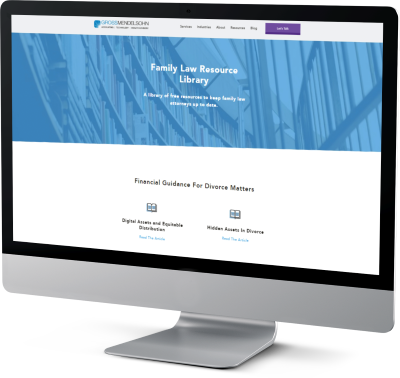In any divorce, bright spots are always welcome. If you can find income that wasn’t previously reported by a spouse or help determine whether or not certain assets should be part of a settlement, you give your clients a big reason to smile. Or at least breathe a little easier.
Here are four ways enlisting the help of a seasoned forensic accountant can pay off:
1. Determining income: how much does the spouse really make?
Answering that question is often a lot harder than simply reviewing tax returns. In calculating true income, matrimonial attorneys must consider the value of the benefits that the spouse is receiving for health insurance, life insurance, a pension plan and other perks that can add up to tens of thousands a year or more.
On the other hand, a spouse may have a more complicated compensation arrangement, such as what generally happens in a partnership. If they are highly successful, they may be given loans from their employer that are later forgiven. Should that be considered income for the divorce?
2. Finding tangible assets: can you account for all physical property?
Tangible assets range from real estate that’s worth a lot of money, to safe deposit boxes and storage units. It doesn’t take a Sherlock Holmes to uncover these assets, but it does take skills, experience and expertise to search for, gather and analyze publicly available data and other sources of information. For example, does the spouse have a separate abode for their new significant other that they’re not disclosing?
It’s a good idea to also investigate transactions involving close family members — to keep tabs on any transfers of assets in the midst of the couple’s separation.
3. Finding intangible assets: what's the cost of the inevitable?
Not all assets are physical. Part of delighting divorce clients is helping them uncover and value investments, digital assets, pension plans, intellectual property like trademarks and patents, and other intangibles. This again requires skilled investigative research.
4. Determining if income is being manipulated: Is everyone playing fair?
If you encounter a spouse that owns 100% of a business, you’ll need to look at utilities, vendors and other expenses related to the business to look for anomalies and other forms of deception like wage inflations.
Spending money unnecessarily is a way to artificially depress or shelter income. For instance, is the spouse buying new equipment for their company to make the business appear less profitable? Is it a company that brings in a lot of cash that could go unreported?
Every Hero Needs Some Help
Family law attorneys looking to uncover the above for their clients fare well when leaving it to accounting experts. Quality forensic accountants leave no stone unturned, investigating everything from suspicious spending patterns to hidden accounts. It’s their job to arm attorneys with the evidence they need to get their clients what they deserve.
Need Help?
Our Forensic, Valuation & Litigation Support Group can help. Contact us online or call us at 800.899.4623.


